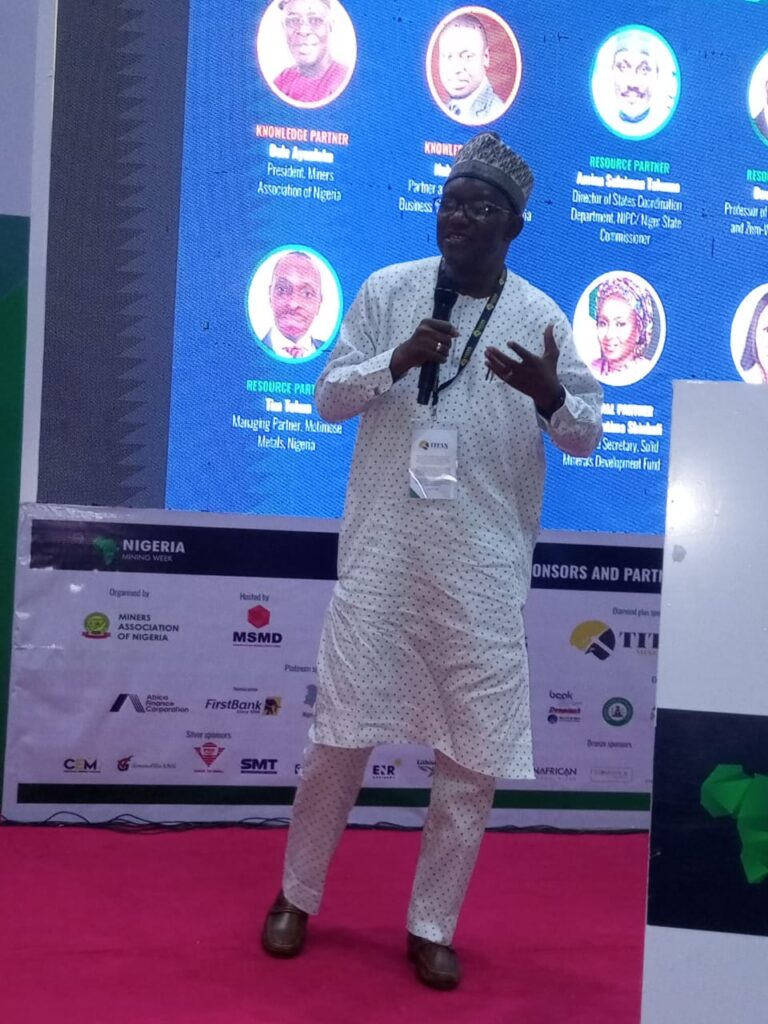The director general, DG, of the Nigerian Geological Survey Agency, NGSA, and President, Nigeria Society of Economic Geologists, NSEG, Dr Abdulrazaq Garba, has stated that the gold and lithium deposits found in Nigeria are of high grade.
According to Dr. Garba, who was making a presentation at the 8th Nigeria Mining Week, ended recently in Abuja. The findings from the already concluded National Integrated Mineral Exploration Project, NIMEP, confirmed this.
The NIMEP is part of federal government’s diversification effort through the Ministry of Solid Minerals Development to make the sector more attractive to investors by providing bankable data and lead the charge towards further exploration and development of the nation’s solid mineral resources.
Garba who was the coordinator and overseer of the NIMEP for the ministry said it had been confirmed even by the pronouncement of some of the companies that beneath the surface, the country have high-grade lithium occurrences in Nasarawa and also in Kwara, where are some of the companies are working.

He said because of the interest in lithium, an appropriate model was adopted in demystifying its mineralisation in Nigeria, “and from what we have seen is that, an average is not more than 1.5%, but we have higher than that grade in the country”.
Dr Garba noted that the problem is the inability yet, to determine the size of lithium mineralisation in the country.
“If we are able to determine the size, that is the volume of lithium oxides in the different locations across the country, Nigeria mineralisation can project into those of world class, but as it is now, Nigeria mineralisation is just a conceptual model, we don’t have information about the size,” he said.
In the area of gold, the nation’s number one geologist said results from one of the gold belt targets identified indicated a gold trend aligned almost Zamfara, Kebbi, and FCT areas N-S and spanning about 7km long and > 500m wide, while drilling in the area showed significant intersections of gold bearing veins with grades averaging 1.6 grams per ton.
He said the “findings already suggested the potentials of having a major gold and Ni-Cr-Co trend that could be attractive to major investors.”
He noted however that for barite mineralisation, contrary to the notion that there is a huge deposit of the mineral, the encumbrance is that the veins are very lean deep down and not big enough to support extensively deep mining projects.
Dr. Garba, who believes that the NIMEP was one of the best things to have happened to the sector, said the initiative portends a lot of advantages and has started yielding the desired fruits.

According to him, the execution of the project serves as an investment tonic, drawing investors of various kinds in droves into the sector because they now have convincing data, for example, the Segilola Gold Project in Osun State, being handled by Segilola Resources Operating Limited, a subsidiary of Thor Exploration Limited.



